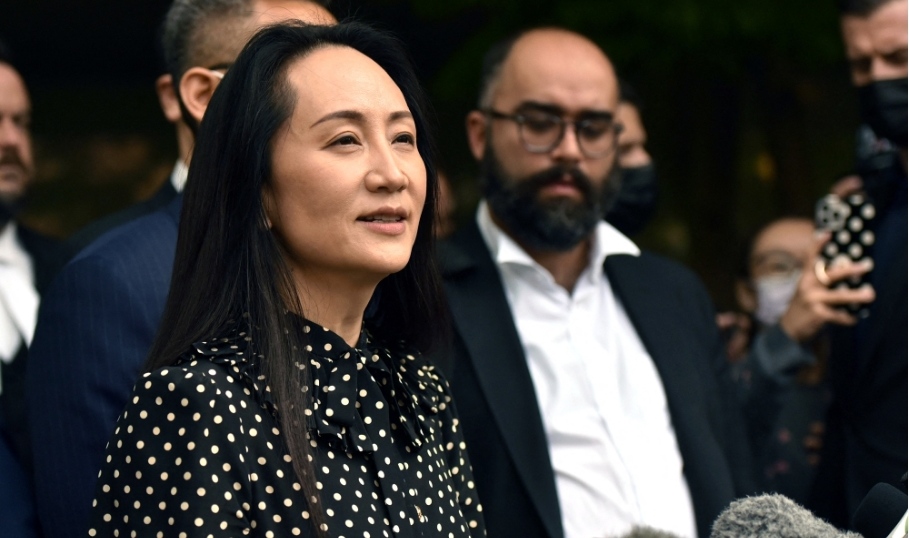Huawei’s Meng Wanzhou released after nearly 3 years in detention in Canada

Meng Wanzhou
Huawei’s Meng Wanzhou has been finally released in a landmark deal with the US Justice Department without pleading guilty. Now the Senior Executive of the Chinese Company will be allowed to return to China. It marks the end of Meng’s nearly three-year detention in Canada, and may help ease the frozen China-Canada tie and frictions between China and the US, experts said.
Meng has been released after reaching the agreement, and people familiar with the matter confirmed that Meng will return to China on Saturday night and she is now at the airport for boarding.
In a video footage seen, a GPS tracker ankle bracelet that Meng has worn for over two years has been removed, and she addressed the public after the hearing, showing gratitude for the Canadian judge and court upholding the rule of law. She also thanked the Chinese embassy in Canada, her defense team and her colleagues. Although it has been a very difficult time, there’s always hope, Meng said.
Meng appeared virtually in an American federal courtroom in Brooklyn on Friday, and reached a deferred prosecution agreement (DPA) in a case of federal charges against her for bank and wire fraud. Under the terms of this agreement, Meng will not be prosecuted further in the US and the extradition proceedings in Canada will be terminated, according to a statement of William Taylor, one of the lawyers who represent Meng.
“She has not pleaded guilty and we fully expect the indictment will be dismissed with prejudice after fourteen months. Now, she will be free to return home to be with her family,” he said.
It’s exciting news that the US and Meng have finally reached an agreement, which would also be a landmark deal that may help ease frictions in the China-US relations, Chinese experts said.
At the request of the US government, the Canadian government, based on so-called accusations of fraud levelled by the US, on December 1, 2018 illegally detained Meng, who is also the daughter of Ren Zhengfei, founder of Huawei.
Meng and her defense team made the final push against extradition to the US, and the legal proceedings ended in mid-August without a decision. The judge was supposed to convene a case management conference on October 21. During the conference, she would indicate a date when the decisions will be given.
The earlier-than-expected deal with the US made all the following process “unnecessary.” On the same day, the Canadian court also signed off on a discharge order for Meng, withdrawing the US extradition order and allowing her to return to China.
Lü Xiang, a research fellow at the Chinese Academy of Social Sciences, said that there are multiple factors driving the US to resolve this issue, including the consistent attitude of the Chinese government in urging the US and Canada to release Meng, and the mounting pressure that Canada has been facing as it clearly knows that if it insists on the extradition of Meng to the US, it would create irretrievable negative consequences on China-Canada relations.

Over the past years, Chinese diplomats and experts have urged the Trudeau administration many times to correct its mistake of serving as Washington’s willing accomplice that has dragged China-Canada relations to freezing point.
The souring bilateral relationship has also disrupted the once stable trade relations between the two countries, and some Chinese business people have been looking for a “plan B” over the past two years to diversify their import sources other than Canada as they are afraid of a “black swan” event that could happen at any time.
“Canada has been persuading the US to drop the case. For the Biden administration, it has been evaluating US-China relations from the position of strength over the past eight months, and it understands that if it drops the charges against Meng, such progress would meet the expectation for improving bilateral ties,” Lü said.




